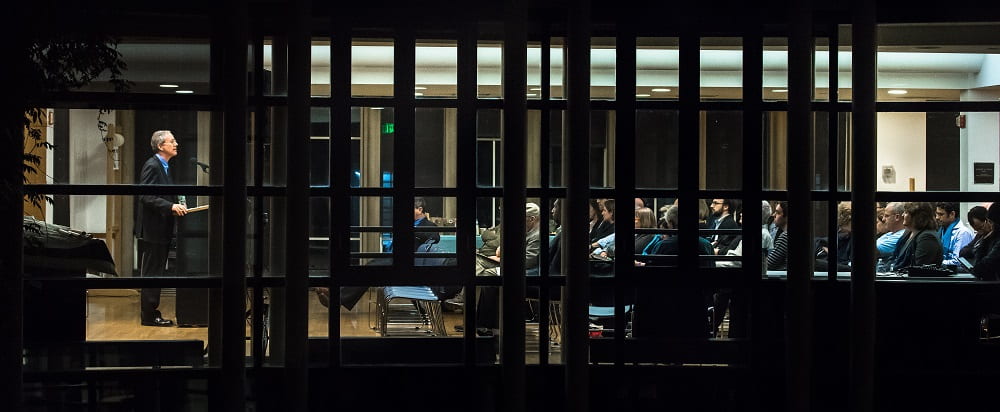
Message from our Director,
Derek Penslar
William Lee Frost Professor of Jewish History
Department of History
November 2025
The last year has been difficult for Harvard. Amidst threats to Harvard’s funding and enrollment of international students, and debates about the limits of free speech in our community, it has been more vital than ever to keep sight of our university’s primary goal: to, in the words of a 2024 Harvard Working Group report, “enable students to pursue lives of reflection, curiosity, deliberation, and civic engagement.”
Albert Einstein once said, “I have no special talents. I am only passionately curious.” Harvard’s students and faculty have a mission to passionately pursue knowledge, foster individual and collective growth, and range outside of their intellectual and emotional comfort zones. We must engage with and respect differing values and beliefs.
The Center for Jewish Studies has a crucial role to play in fulfilling Harvard’s mission. Jewish civilization is small but has had a vast impact on humanity. Jewish religious belief and practice provided underpinnings of Christianity and Islam. The position of Jews in a society is indicative of its flexibility and stability, or its weaknesses and failings. Jews are, in the words of the anthropologist Claude Lévi-Strauss, “good to think with.” The CJS provides abundant ways for Harvard students to learn about Jews, and thereby to think about the world.
This year’s report documents the extraordinary range of our course offerings, programming, and other activities related to Jewish studies. Our courses cover the gamut of Jewish civilization, and our students come from many faith traditions. Our outstanding faculty bring into the classroom cutting-edge research on Judaism, Jewish thought and history, and Jewish languages and literatures. Our classes on Israel/Palestine — a subject on which people often have strong passions but limited knowledge — demand and achieve rigor, deep engagement, and respect for diverse points of view.
There are no simple answers to the multiple crises facing the Jewish world today. At the CJS we confront our educational mission with humility as well as commitment. But we take seriously our obligation to be a center in both meanings of the word — an institutional unit and the prime address at Harvard for the study of Judaism and the Jews.
The recommendations of the Presidential Task Force on Combating Antisemitism and Anti-Israeli Bias, which I had the honor of co-chairing, urged the expansion of teaching on Jewish civilization, Israel/Palestine, and antisemitism. To that end, CJS offerings this year include new courses on antisemitism, the Holocaust, Jewish law, American Judaism, Yiddish literature, and the history of the Jews of the Middle East and North Africa.
Harvard faces a bumpy road of indeterminate length. Working together, our students, faculty, and supporters from within and beyond our alumni community can ensure that we model fundamental Jewish values of resolve, love of learning, and compassion for kol yoshvei tevel — all who dwell on Earth.
